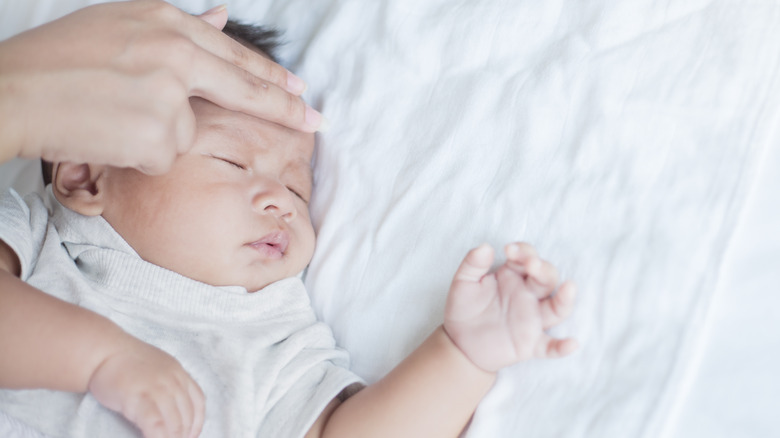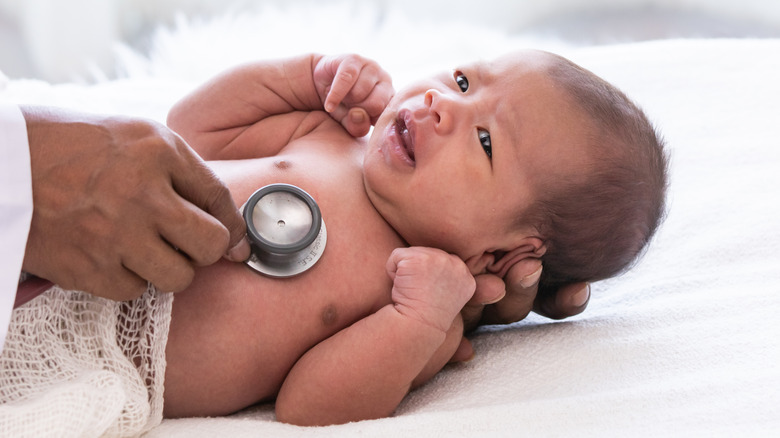Why Newborn Fevers Are So Dangerous
A fever in a newborn baby is defined as a minimum temperature of 100.4 degrees Fahrenheit or 38.0 degrees Celsius, as per Seattle Children's Hospital. This includes temperatures taken rectally or in the ear or forehead. The causes of a fever in a small baby vary, but the most common is a viral infection, such as a cold or flu. Other causes include bacterial infections, a vaccine reaction, overheating, and meningitis. The presence of other symptoms, such as unresponsiveness, trouble breathing, dehydration, chills, and nonstop crying, can help determine the underlying cause of the fever.
Regardless of the cause of the fever though, there are steps you can take to make your baby more comfortable and help it pass, as per Healthline. For starters, you'll want to ensure they are getting enough fluids. In newborns, however, this should only come from breast milk or formula. If the ambient temperature is too high, turn it down or turn on a fan or air conditioner to prevent your baby from overheating. Note that administering fever-reducing medication, such as acetaminophen, is not recommended in newborns or babies under three months of age.
As a general rule of thumb, you'll always want to accompany any fever-reducing methods with a call to your doctor, particularly if you have a newborn baby, as a fever can indicate a much more significant problem in babies this young, states the Mayo Clinic.
Your baby could have a life-threatening infection
A fever in a newborn baby is definitely a cause for concern and an immediate call to a doctor or visit to an emergency room, according to Mayo Clinic pediatrician, Dr. Seth Gregory. "A fever in this age group can be a sign of a serious bacterial infection that requires urgent medical treatment," he explained. If you note that your baby is extra fussy, not taking in milk as normal, feels hot when you place a hand on them or is vomiting, these are all signs that a fever is indicative of a more serious underlying problem. In this case, Gregory advises taking your baby to an emergency room for diagnosis and treatment, especially if they are younger than two months.
Once admitted to the hospital, a series of tests will be employed to determine the cause of the fever and if it is indicative of a bacterial infection. These exams can include an X-ray of the lungs, urine and blood analyses, and a lumbar puncture. Keep in mind, each one of these tests looks for different bacterial infections.
Experts at Johns Hopkins All Children's Hospital add that any bacterial infection will require treatment to avoid complications. They point out that in young babies, infections can lead to disruptions in the child's growth, cerebral development, and various organ systems if not addressed early. This is in part because of their brand-new immune systems that aren't yet prepared to handle infections in the body.


